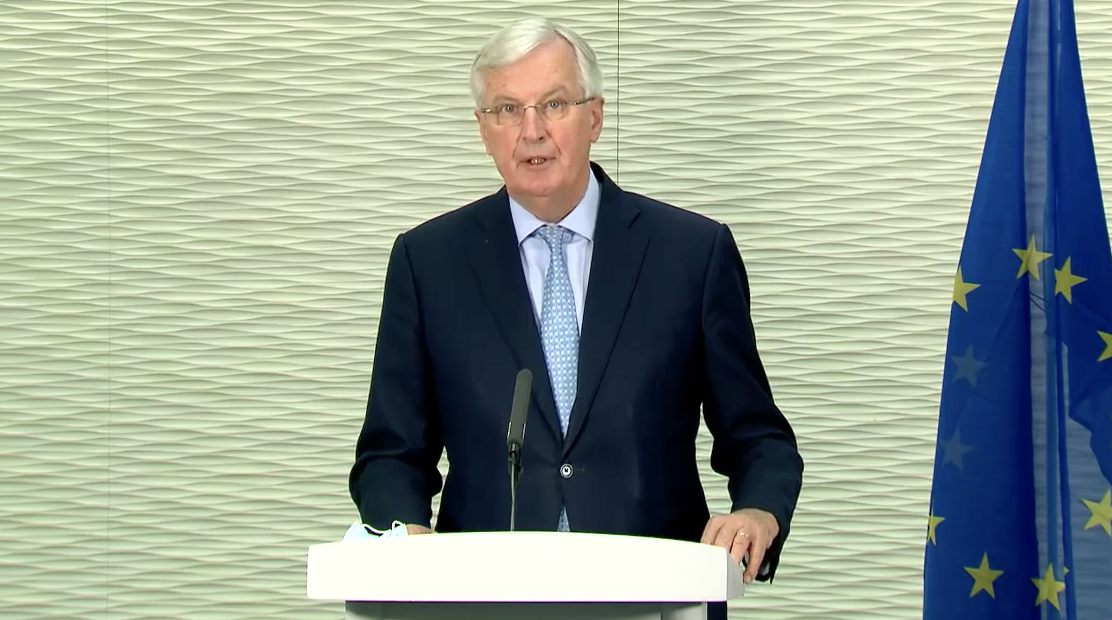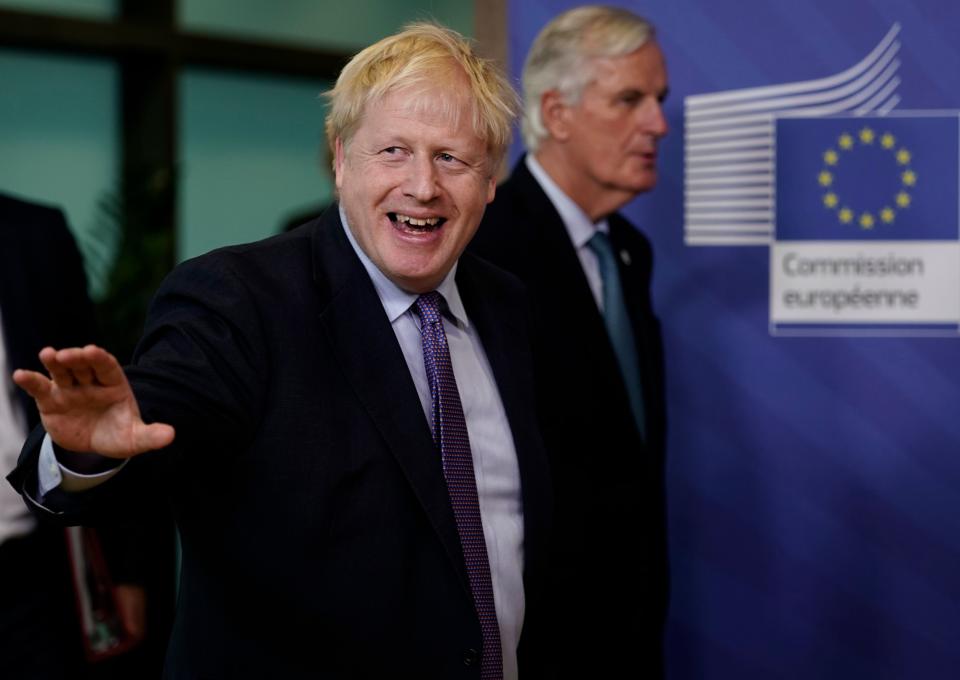Michel Barnier warns Brexit deal is ‘unlikely’ as he accuses UK of being ‘unwilling to break the deadlock’

Michel Barnier has warned a Brexit deal is “unlikely” after he accused the UK of being “unwilling to break the deadlock”.
It follows the latest round of talks seeking to agree a “future relationship” deal between the UK and EU beyond 31 December.
Barnier, the EU’s chief Brexit negotiator, said talks remain at a stalemate: “We are still far away.”
At a press conference on Thursday, he accused Boris Johnson’s government of “not showing a willingness to break the deadlock”.

He added: “Over the past few weeks the UK has not shown the same level of engagement and readiness to find solutions respecting the EU fundamental principles and interests.”
Barnier said there had been no progress on two key points: the “level playing field” to ensure fair competition between businesses, and fisheries.
“We have been saying the same thing since the very beginning of these negotiations,” he said.
“They were part and parcel of our engagement with Boris Johnson eight months ago [when the UK and EU agreed a Brexit blueprint]. We are simply asking to translate this political engagement into a legal text, nothing more.
“The time for answers is quickly running out.
"By its current refusal to commit to open and fair competition, and to a balanced agreement on fisheries, the UK makes a trade agreement – at this point – unlikely."
The UK, after leaving the EU on 31 January, is in a “transition period” in which the two sides have until 31 December to agree their future relationship.
During the transition period, the UK effectively remains a member of the EU. It could have been extended for up to two years but Michael Gove “formally confirmed” the UK wouldn’t seek an extension last month.
Barnier also warned the EU and UK have until “October at the latest” to strike a deal or risk the imposition of quotas and tariffs.
He said: “If we do not reach an agreement on our future partnership there will be far more friction.
“For instance, on trading goods – in addition to new customs formalities there will be tariffs and quotas.
“This is the truth of Brexit... and I will continue to tell the truth.
Read more: Russia report: Seven revelations from the damning document that was delayed for nine months
“If we want to avoid this additional friction we must come to an agreement in October at the latest so that our new treaty can enter into force on 1 January next year.”
David Frost, the UK’s chief Brexit negotiator, said in a statement: “Considerable gaps remain in the most difficult areas. That is the so-called level playing field and on fisheries.
“We have always been clear that our principles in these areas are not simple negotiating positions but expressions of the reality that we will be a fully independent country at the end of the transition period.”

